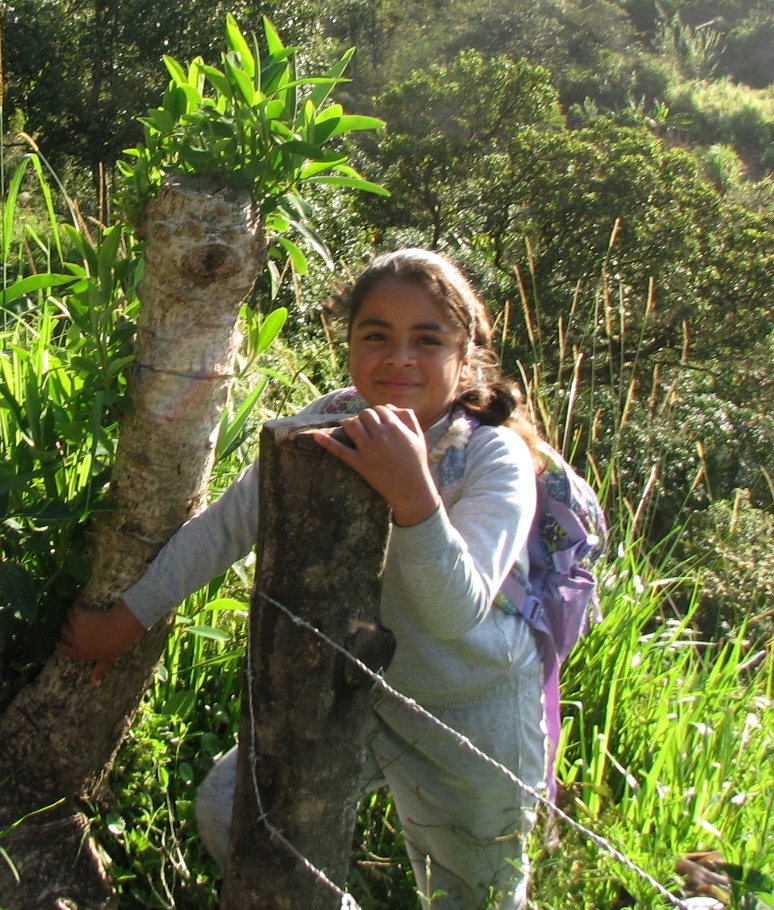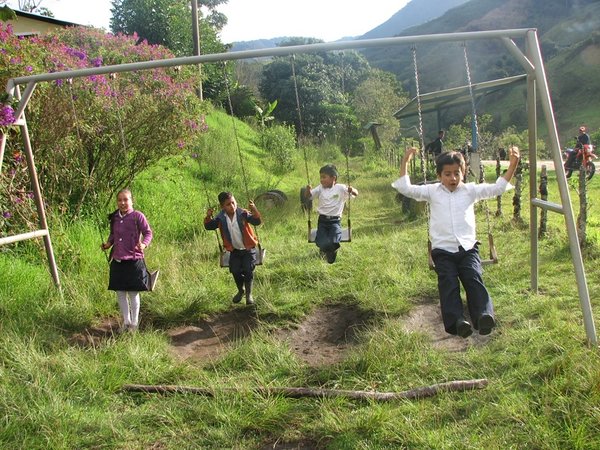Teaching
Teaching is one of the best ways that visitors can help young people to get out of the poverty trap and make the most of their lives. Teaching english is obligatory in the ecuadorian syllabus for secondary education, but in reality is almost non-existent in this parish, due to its remoteness from urban centres. Your help in showing local people that education opens doors is valuable and appreciated by local people. You give them the chance to enter a wider range of professions than just farming, if they wish.We usually work with four local schools, to give volunteers a variety of climate and teaching style: Rosario, Magdalena, San Antonio and San Joaquin. In each of these schools, the children range from 5 to 12 years old (1st to 7th grade), and there is one permanent teacher. The total number of children in each school is usually from 20 to 25.
Cuellaje village/small town has a primary school (1st to 7th grade), similar to the schools described above - and there is also the High School, where there are around 150 children aged 12 to 18 years. Here the priority is again English teaching, and the emphasis is on english for tourism; and again, other subjects are welcome by arrangement with the head teacher (Marcelo Paez). Unlike the primary schools, the High school has a permanent english teacher (Nancy) who prepares the students for the bachillerato examination of secondary education.
What is expected of you?
Hours are 7.30 am to 1pm monday to Friday - and it's fine if you choose to alter or limit your time as a teacher in order to do farmwork and/or conservation, by arrangement with the permanent teacher. Usually, you are asked to lead your own TESOL classes, and you can read full, independent descriptions of what this involves on our blog www.ecotouristadventure.wordpress.com. Snacks are served at the school, and lunch is with your chosen host family around 1.30 pm, after which you are free to relax and/or take part in farming activities, excursions etc with your chosen host family.
If you have never taught before, don't be put off by the prospect of taking your own class, since the most important thing is your own enthusiasm, willingness to teach and learn, and just being there! - your presence is a tremendous thrill and confidence boost for the children of this remote and neglected parish. Songs, games, competitions, excursions, and "flash cards" are just a few of the techniques that work well with rural children. The book 176 ESL games by Shelley Ann Vernon is a wonderful source of ideas and advice in this respect.
A basic knowledge of Spanish is necessary for all teaching placements.
Please note that the long school vacation in this part of Ecuador is from mid february to end of april.
We have teamed up with a great volunteer not-for-profit organisation, the Omprakash foundation, and their professional and experienced team provide a wealth of support and information to help you get the most out of the volunteer experience, without costing you a cent. Though you can reach us directly, we recommend that you apply to us through their website. Our profile is at https://www.omprakash.org/global/ccsp-ecuador
the cloud forest project coordinator can be reached direct at nedcresswell@yahoo.com. Telephone (including national and international codes) ## 593 6 3017543



